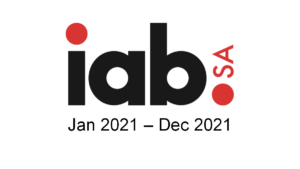

 Section 112 of the Criminal Procedure Act 51 of 1977 (the CPA) deals with pleading guilty at summary trial and the circumstances, which demand for the matter to be heard before the court.
Section 112 of the Criminal Procedure Act 51 of 1977 (the CPA) deals with pleading guilty at summary trial and the circumstances, which demand for the matter to be heard before the court.
State accepting a plea in terms of s 112(1)(a) of the CPA
The accused under such a situation may only be sentenced to a period of imprisonment with an option of a fine or be cautioned and discharged. The section may only be used where the offence committed is of a trivial nature. No serious cases may be dealt with in terms of this section.
The state may not, after accepting a plea in terms of this section, prove any previous convictions against the offender. The court, accepting and considering previous convictions under these circumstances, is seen as committing a travesty of justice and the matter may be subject to a special review. A trivial matter may be regarded as serious if the accused has previous convictions relevant or not to the charge at hand.
It is presumable that a presiding judicial officer is not privy to whether the accused has a criminal record, and only after a guilty plea has been entered and the accused has been found guilty and charged for the offence, the state can prove as such per the SAP 69 record from a local criminal record centre.
It is then advisable that a presiding judicial officer, to be on the safe side, invoke the provisions of s 112(1)(b), which allows for questioning of the accused or failing which, disregards the criminal record and deals with the accused summarily.
Justice (R) Dr Munir Ahmad Mughal in ‘Distinction between Summary Trial and Regular Trial under Code of Criminal Procedure, 1898’ states: ‘The object is to avoid wastage of time but … never to defeat the ends of justice’ (https://ssrn.com, accessed 9-4-2020).
Questioning in terms of s 112(1)(b) of the CPA
The court will put certain questions to the accused in order to ascertain whether they admit to the allegations in the charge against them, and whether they are, in law, guilty of the offence to which they have pleaded. If the court, after questioning, is satisfied that they admit to all the allegations, the accused is convicted without any evidence being heard by the court on the merits.
If after questioning, the court is not satisfied that the accused has admitted to all the allegations in the charge, whether they deny or dispute such allegations (briefly state what is in dispute), the record of a plea of not guilty in terms of s 113 of CPA is recorded.
The accused must be informed that the admissions, which they have made while being questioned, will stand as proof thereof and that it will not be necessary that the state proves the same, and further that the exculpatory statement that the accused has made during questioning has no probative or evidential value. The accused should also be informed that if they want that statement to be included as evidence, they may have to confirm it under oath during the trial. The prosecutor will then proceed with the prosecution.
Tobile Bara BJuris LLB (University of Transkei) is a legal practitioner and currently acting as a Magistrate in Port Elizabeth.
This article was first published in De Rebus in 2020 (May) DR 24.





De Rebus proudly displays the “FAIR” stamp of the Press Council of South Africa, indicating our commitment to adhere to the Code of Ethics for Print and online media, which prescribes that our reportage is truthful, accurate and fair. Should you wish to lodge a complaint about our news coverage, please lodge a complaint on the Press Council’s website at www.presscouncil.org.za or e-mail the complaint to enquiries@ombudsman.org.za. Contact the Press Council at (011) 4843612.
|
South African COVID-19 Coronavirus. Access the latest information on: www.sacoronavirus.co.za
|

